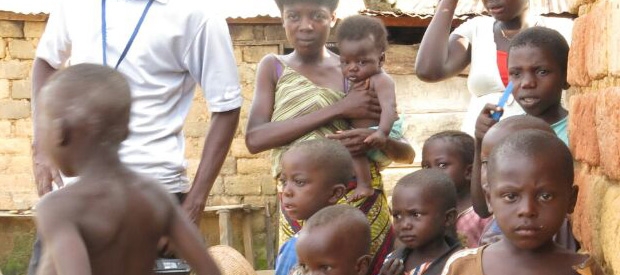Video | An Interview with Bruno Kapandji, Project Director for Grand Inga
On May 9, 2016, our Africa Program Associate Ange Asanzi sat down with Bruno Kapandji, Project Director for Grand Inga, to discuss the progress of the troubled Inga 3 Dam project.
During the interview, the two spoke about energy poverty in the Democratic Republic of Congo and whether Inga 3 would address that (Kapandji says it won’t). They also talked about how DRC would mitigate the negative impacts of the Inga 3 project.
Later in the meeting , Kapandji dropped a bombshell when he said that Grand Inga could be built without social and environmental impact assessments – and even suggested that International Rivers could fund these assessments ourselves, if we thought they were important. Needless to say, this was a breach of international standards and best practices, and it caught the media's attention. A few months later, in July, the World Bank suspended financial support for the project.
Watch the video (in French), or read the English translation below.
Transcript: Meeting International Rivers – Bruno Kapandji, 5/9/2016
(0.00 to 1.11)
Kapandji: "Inga 3 is here to meet a need, but Inga will not resolve the energy poverty in the country, that is why we have in place the Ministry of Energy to improve the country's access to electricity – supply electricity to people, government institutions and also for export, because we need money, don't we! Today the price of commodities is falling and we need revenue – If we have a lot of energy to export like Canada and Uruguay we won't have a problem."
(1.25 to 1.57)
Kapandji: "DRC is unfortunate, we are always a leader in finding solutions, but implementation on the ground is always slow. Inga 3 will produced almost 3000 MW, 1000 in the region and a 1000 in the South for the mines, etc."
(1.57 to 02.12)
Kapandji: "Our industry cannot develop because of lack of energy, this is a concern for us."
(3.50 to 4.37)
Kapandji: "The Congo River has a regular flow throughout the year of 42,000 cubic meters/second, and the Bundi Valley will be designed in a way that the turbines will operate at maximum capacity. That is why we work with the best consultants – Aecom, Tractabel, etc. – to mitigate the impacts."
(5.08 to 5.21)
Kapandji: "Inga is a Congolese project located in Congo, you have to think as a Congolese. As a Congolese we have no choice but to build Inga 3. And for the cities in Kinshasa, Bas-Congo and Katanga, Inga 3 is the only solution."
(9.36 to 10.36)
International Rivers: What is the current state of the project?
Kapandji: "At this stage we are preparing the files (technical, legal, commercial and financial) to make the following things happen - 1st to start the project as soon as possible, and 2nd select the consortium asap. According to our experts it is possible to start with (at least construction of workers camp etc) in November or December 2016."
(10.36 to 10.58)
Kapandji: "The World Bank already told you that they do not want to finance the project because of this and that – but we are looking for a solution that is why President Kabila took matters into his own hands, and that is why we are looking at how to carry the studies, then I asked the NGOs, why can't you commission or finance these studies? You only know how to ask questions!"
(16.50 to 20.16)
International Rivers: Do you think that between May and December all the studies will be completed, it is expected that all studies are completed before construction begins?
Kapandji: "It is a choice to make, people have no electricity and same for the industries, we set an objective – we have to produce energy. The government progamme talks about adding online 20,000 MW by 2035, but the government here has set an objective to produce at least 5000 MW. I am sure we won’t reach these goals, but there are stages – today we can produce 50 MW, then after 20 MW, 30 MW and so on...and in the letter concerning Inga 3, it says that by 2020 we have to supply certain amount of electricity to the Congolese people, mines in Katanga and to South Africa. This is a legally binding commitment, and we are running late. There are a lot of studies to carry, at least 18, and we favor some studies over others based on priority, and to allow us to do the following – first to develop a tender document that will be technically and financially acceptable, and also for the candidate to prepare their offer, that should be credible and reliable, and favor both parties."
Translation by Ange Asanzi, International Rivers



